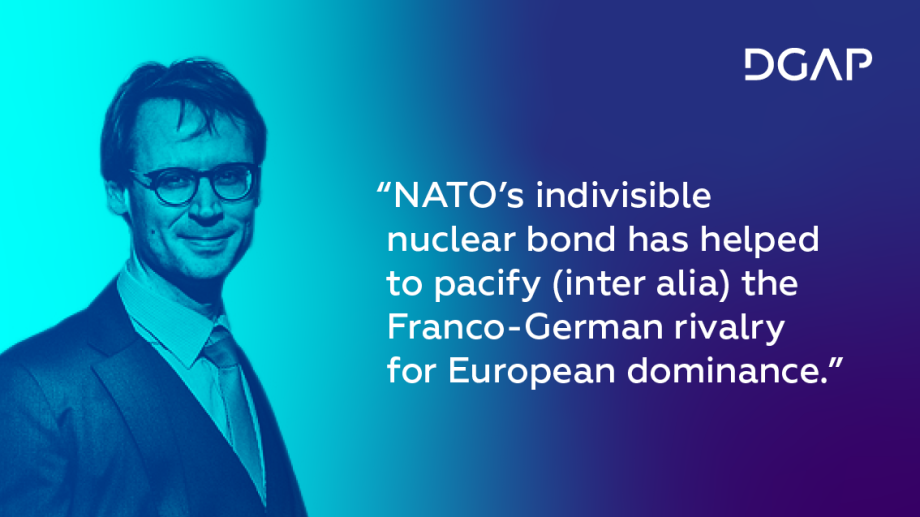DGAP asked leading European experts on foreign policy about Germany’s role in providing nuclear deterrence in Europe. These experts, who each represent an EU member or a key partner, responded to three open-ended questions. You can read the introduction to this assessment and download the whole report by clicking here.
Question 1
How does your government view the importance of nuclear deterrence for its own security and European Security?
Question 2
In view of your government: What difference does Germany’s participation in (technical) nuclear sharing make? (Why) is Germany important in nuclear sharing?
Question 3
What would be plausible/probable effects within NATO and for European Security, if Germany would leave (technical) nuclear sharing?
About the author
Senior Research Fellow, Egmont Institute


